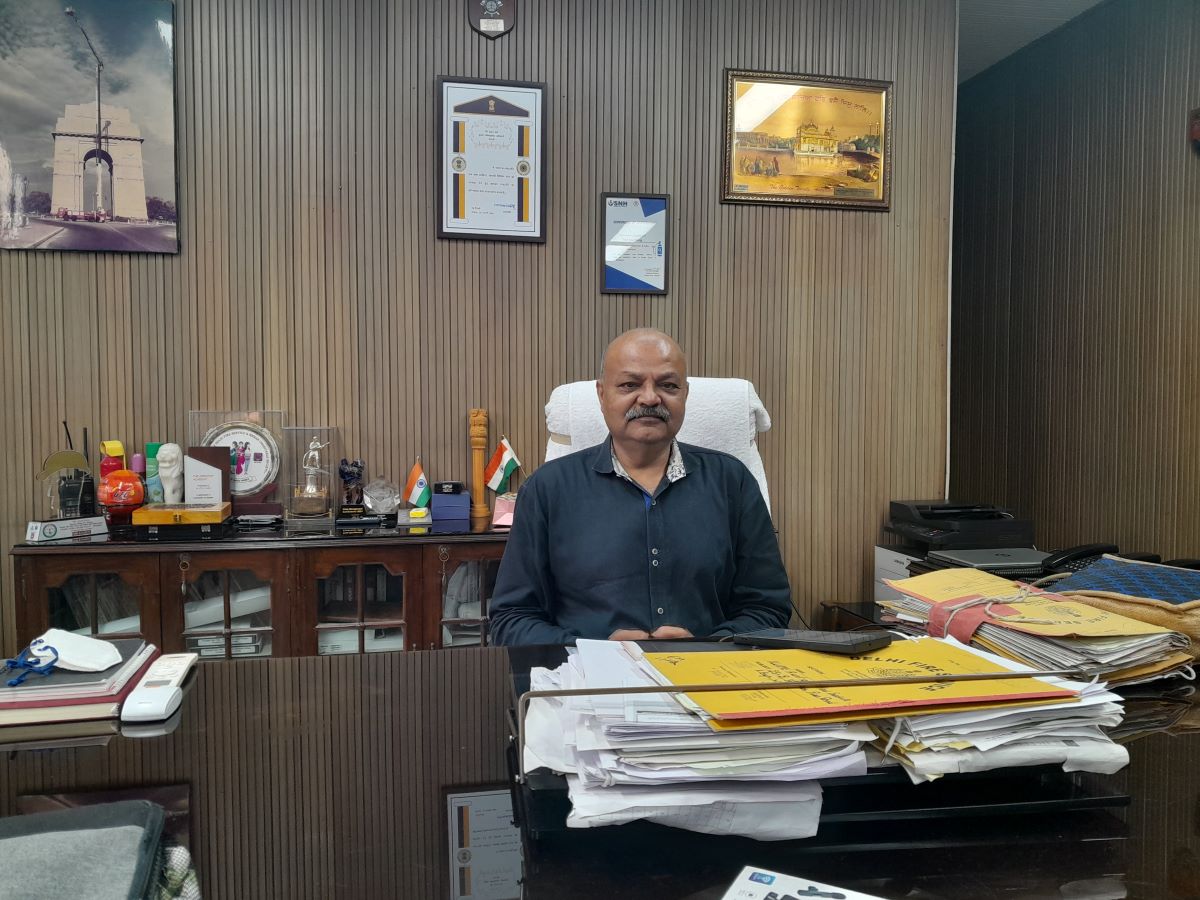
Delhi Fire Service (DFS) chief Atul Garg
Diwali, the festival of lights, is upon us. Even though crackers have been banned, incidents of fire increase during the festival every year, which makes the fire service department’s task challenging.
To know about preparations, work schedule, and challenges ahead of Diwali, Patriot spoke to Atul Garg, the director of Delhi Fire Service (DFS).
Excerpts from an interview:
Q: Tell us about the fire service operation?
A: We have a central control room (CCR) — all citizens call there. We have 100 people in the control room who take calls and work in shifts. Once we receive calls from 101 and 112 [through police], we send the nearest fire tender to the spot. Our initial deployment is of a minimum of two fire engines, which increase according to the situation. These two engines leave from two separate fire stations, to ensure that if one is stuck in a jam, the other can reach.
Q: What challenges do you face during the operation?
A: We try to save everyone, including cattle and birds. The DFS attends to all calls. In the rural areas of Delhi, we even rescue cows or buffaloes that fall into the drain. In fact, 50% of the calls to us are for rescue in non-fire accidents. The major challenge is that people do not inform us in time, because they first try by themselves and inform us only when the situation worsens.
Q: What are your preparations for Diwali and what is the trend from the previous years?
A: It is a tough day for us, so we all, including me, are ready for it. We cancel all the leaves. We have already deployed small fire vans in many congested areas so that we can reach the place of incident as soon as possible. The calls have decreased by 20% due to the ban on crackers, which were the major source of fire. We have chosen 30 locations including Sadar Bazar, Lajpat Nagar market among others. On the day of Diwali, we receive around 250 calls of fire accidents from 6 pm to 11 pm-12 pm. It means a call every minute.
Q: How much time does the fire engine take to reach the spot?
A: It depends on the area where the fire accident has taken place and also the time such as peak hours which is between 5-8 pm.
Q: What equipment do you carry? How do you operate in congested lanes?
A: We have all the equipment including 200 fire-tenders, high-rise vehicles, sky-lift among others. At the moment, we have fire safety equipment equivalent to that in USA. We have bikes for narrow lanes. We have also bought a Tata Yodha pick-up recently, which we deploy till the entrance of the lane. But it’s not enough and not the solution because we need a lot of water too, which can be ferried only by bus and not on bike.
Q: How many calls do you generally receive a day?
A: The number decreases by half during winters but on an average, we receive 100 calls per day every year. We receive the highest number of calls in the country. No other state gets as many fire calls as Delhi. The construction in colonies, the traffic, among other matters, have led to such high numbers. We also want to buy a drone.
Q: You also get a lot of fake calls. So how do you identify and manage them?
A: Yes! This is a big problem and there is no way out of it yet. It really leads to losses sometimes.
Q: Tell us the strength of DFS…
A: We have 64 fire stations which will increase to 80 soon. Some fire stations have two fire tenders while some have even 10. It depends on situation and place. The total manpower is 2,500 which will increase to 3,000 soon. We give six months of tough training to our fire-fighters. They do 24 hours duty and 24 hours rest on rotational basis. This is not an easy job.
Q: What should the citizens do immediately after fire breaks?
A: Citizens should do two things. First, they should step out without delay and not waste time in carrying belongings or saving them. Second, they should inform the fire brigade, instead of trying to stop the fire. This is a technical job, and common people can’t do it. Also, they should guide fire engines which roam around without finding the right location.
Q: Any suggestions…
A: I want to say that only if citizens inform us on time and we get a clear way, can we reach the spot and douse the fire early. It takes three minutes for our engines to get ready and get on to the road at night and two minutes during day-time. Whatever time it takes on the road is besides that. We get some relief in winter, otherwise we have no time. Our first job is to save the citizens’ lives and now we are fully prepared for Diwali.
Around 100 international flights were cancelled at Delhi airport due to disruptions linked to the…
Due to mounting debt and constant pressure, he decided to kill his family and leave…
According to the police, information was received from GTB Hospital regarding the admission of an…
Over 75,000 fans filled Jawaharlal Nehru Stadium as Karan Aujla delivered one of India’s biggest…
Jewellery, silver and cash worth Rs 1.15 crore recovered after police apprehended three accused, including…
Featuring over 70 tribal artists and 1,000 artworks, the festival at Travancore Palace will showcase…